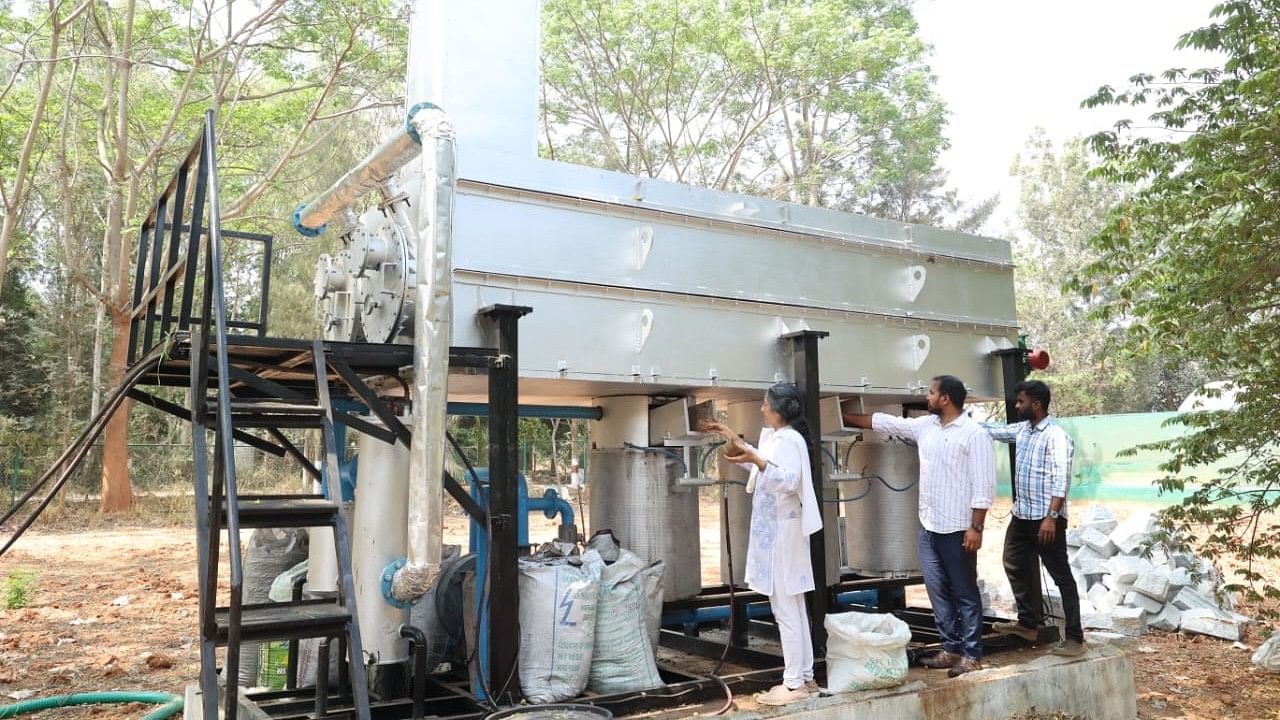
The pyrolysis unit at the University of Agricultural Sciences, GKVK.
Credit: Special Arrangement
Bengaluru: Researchers at the University of Agricultural Sciences, GKVK, installed a pyrolysis unit to convert plastic and biomass into valuable manure and pesticide.
The results were surprising as the pyrolysis process yields a range of useful products. When applied to plastic waste, it produces char, a key material in asphalt and brick manufacturing. It generates syngas, a clean-burning gas that fuels the pyrolysis unit itself, and bio-oils that can be used for various energy applications.
Processing biomass through pyrolysis also produces biochar, often referred to as "black gold" by the agro fraternity.
The experiment started in 2016 with 25 kg of plastic and biomass. It was later scaled up to a 200 kg capacity combustion chamber, fuelled by plastic, biomass, and locally made bio-briquettes.
“This approach aligns with promoting low operating costs and locally available biomass for farmer adoption,” said Dr SV Suresha, Vice-Chancellor, UAS.
“The pyrolysis unit also produces hydrogen gas, which allows the farmers to earn additional income through government schemes such as BioUrja,” he added.
Using biochar has proven beneficial, amid challenges such as monoculture cropping, deforestation, and droughts. It improves soil quality while boosting water retention, nutrient availability, and carbon sequestration.
The carbon found in biochar does not contribute to greenhouse gas emissions and helps reduce soil erosions, he clarified. “When used as cattle feed, biochar helps in regulating methane gas emission by the cattle,” he pointed out.
Regarding the industrial application of biochar, Dr Suresha singled out its role in water purification, air filtration, and the production of activated carbon, which serves as a filler in various polymer types.
However, several urban farmers and gardeners DH spoke to were not aware of biochar’s potential in improving soil quality or its ability in soil moisture retention.
Soon, UAS will collaborate with the government and industries to launch commercial research on biochar usage aimed at promoting its adoption among local farmers.
What is pyrolysis?
Pyrolysis is a tertiary recycling technique. Higher molecular weight organic polymers such as plastic and biomass are converted into liquid oil, char, and gasses at high temperatures through thermal or catalytic decomposition in the absence of oxygen, without burning the polymer waste.